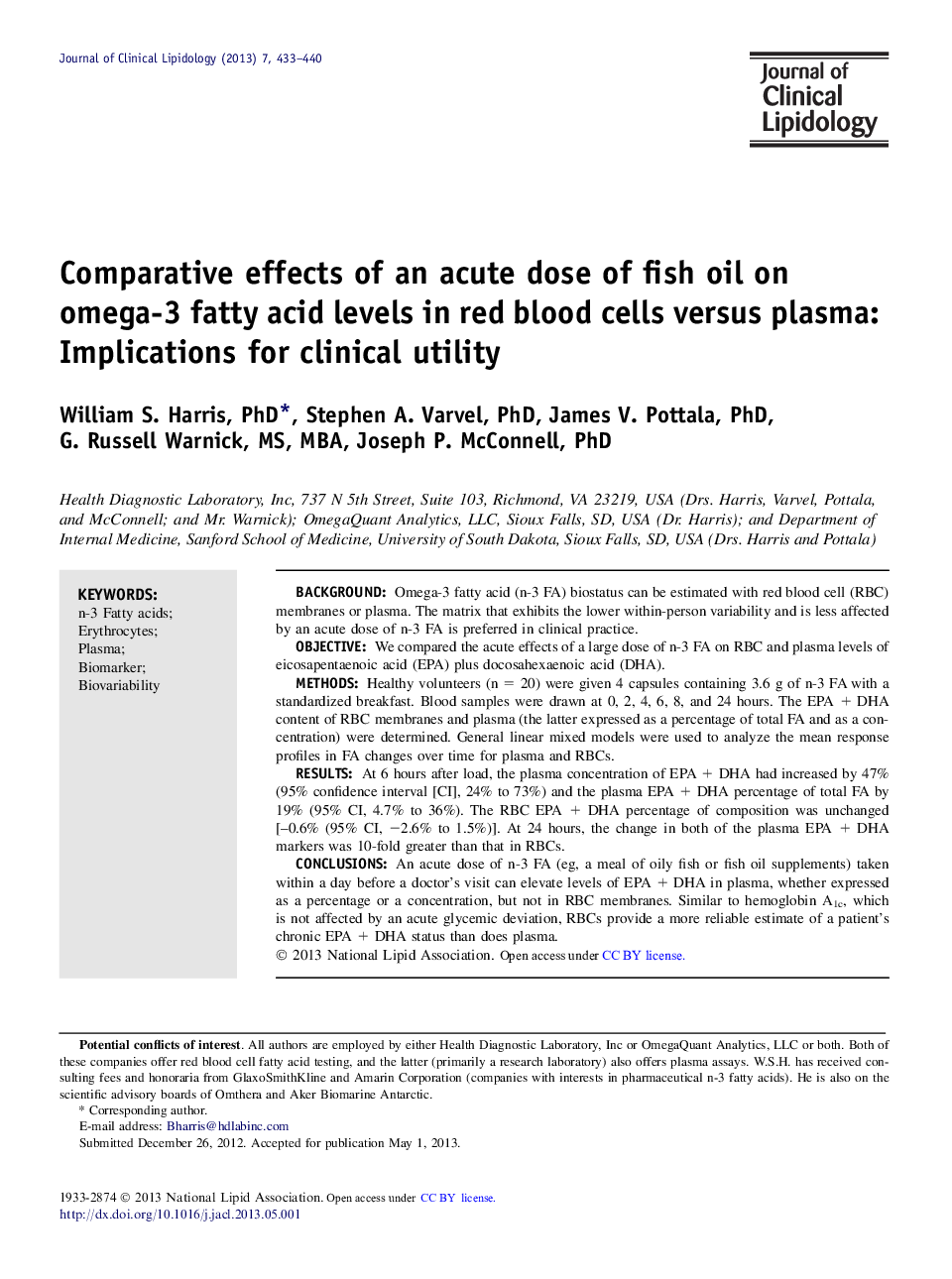| کد مقاله | کد نشریه | سال انتشار | مقاله انگلیسی | نسخه تمام متن |
|---|---|---|---|---|
| 5986084 | 1178799 | 2013 | 8 صفحه PDF | دانلود رایگان |
BackgroundOmega-3 fatty acid (n-3 FA) biostatus can be estimated with red blood cell (RBC) membranes or plasma. The matrix that exhibits the lower within-person variability and is less affected by an acute dose of n-3 FA is preferred in clinical practice.ObjectiveWe compared the acute effects of a large dose of n-3 FA on RBC and plasma levels of eicosapentaenoic acid (EPA) plus docosahexaenoic acid (DHA).MethodsHealthy volunteers (n = 20) were given 4 capsules containing 3.6 g of n-3 FA with a standardized breakfast. Blood samples were drawn at 0, 2, 4, 6, 8, and 24 hours. The EPA + DHA content of RBC membranes and plasma (the latter expressed as a percentage of total FA and as a concentration) were determined. General linear mixed models were used to analyze the mean response profiles in FA changes over time for plasma and RBCs.ResultsAt 6 hours after load, the plasma concentration of EPA + DHA had increased by 47% (95% confidence interval [CI], 24% to 73%) and the plasma EPA + DHA percentage of total FA by 19% (95% CI, 4.7% to 36%). The RBC EPA + DHA percentage of composition was unchanged [-0.6% (95% CI, â2.6% to 1.5%)]. At 24 hours, the change in both of the plasma EPA + DHA markers was 10-fold greater than that in RBCs.ConclusionsAn acute dose of n-3 FA (eg, a meal of oily fish or fish oil supplements) taken within a day before a doctor's visit can elevate levels of EPA + DHA in plasma, whether expressed as a percentage or a concentration, but not in RBC membranes. Similar to hemoglobin A1c, which is not affected by an acute glycemic deviation, RBCs provide a more reliable estimate of a patient's chronic EPA + DHA status than does plasma.
Journal: Journal of Clinical Lipidology - Volume 7, Issue 5, SeptemberâOctober 2013, Pages 433-440
